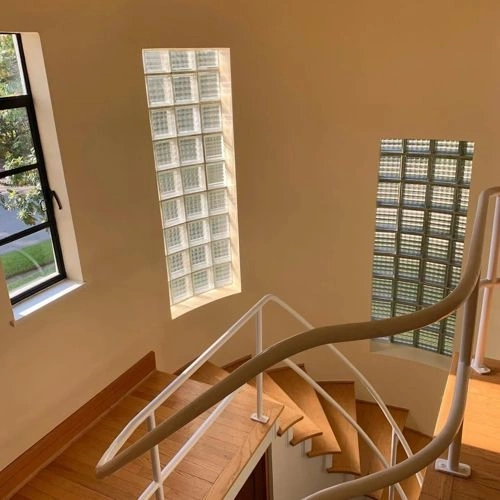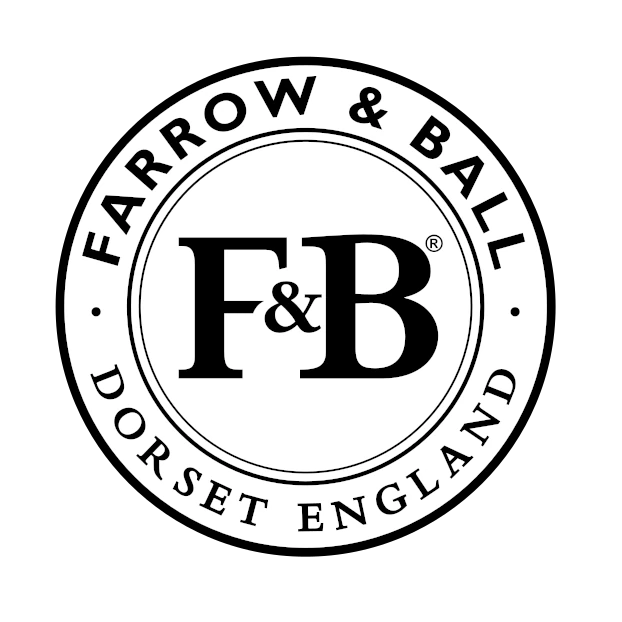Benjamin Moore Sweet Nectar 156
| Official page: | Sweet Nectar 156 |
| Code: | 156 |
| Name: | Sweet Nectar |
| Brand: | Benjamin Moore |
What color is Benjamin Moore Sweet Nectar?
Imagine walls painted in Benjamin Moore 156 Sweet Nectar, a delightful hue that radiates warmth and vibrancy. This rich color pairs beautifully with earthy tones like sage green and warm neutrals such as beige or taupe. When combined with accents in deep navy or soft blush, Sweet Nectar transforms a space into a comforting retreat. This versatile color can be used in various design styles, from modern to traditional, adding a pop of personality to any room. Embark on a color journey with Benjamin Moore 156 Sweet Nectar as your guide, and let your room come to life with its captivating allure.
Sweet Nectar for bedroom
We’ve hand-picked a beautiful collection of photos of this amazing yellow shade used in real bedrooms. Take a look and imagine how this wonderful warm light paint color could transform your own bedroom space.
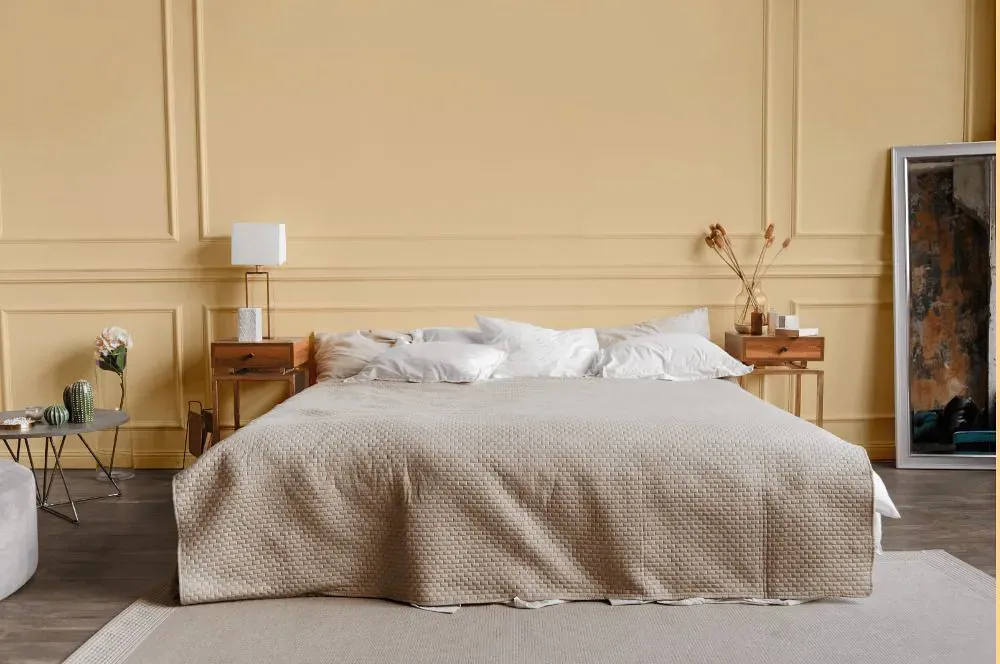
Sweet Nectar for living room (7 photos)
Check out this stunning Light color used in real living rooms. Explore how this yellow shade can create a unique space
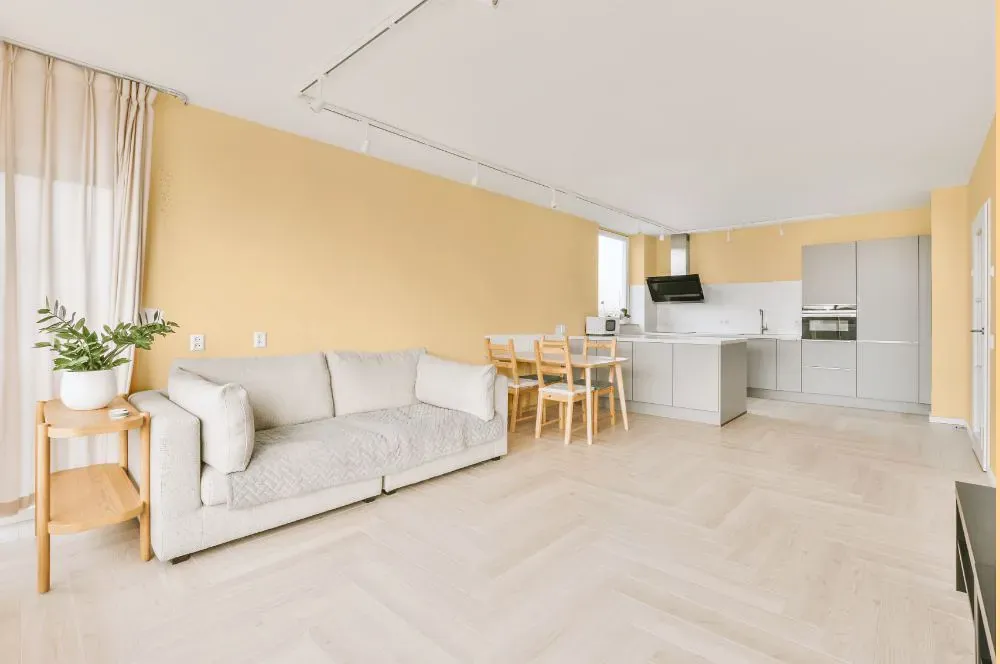
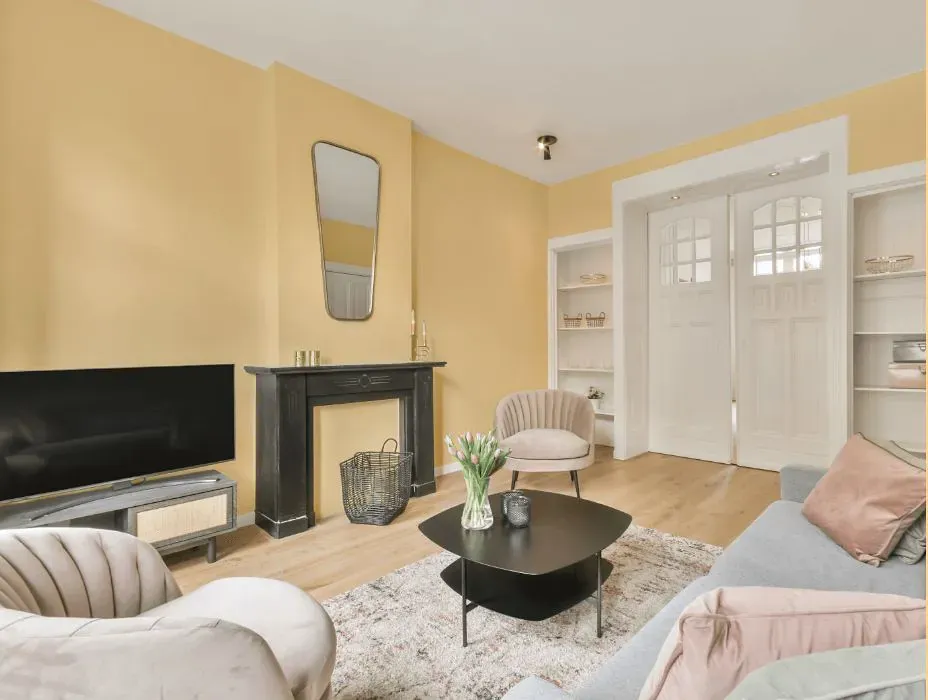
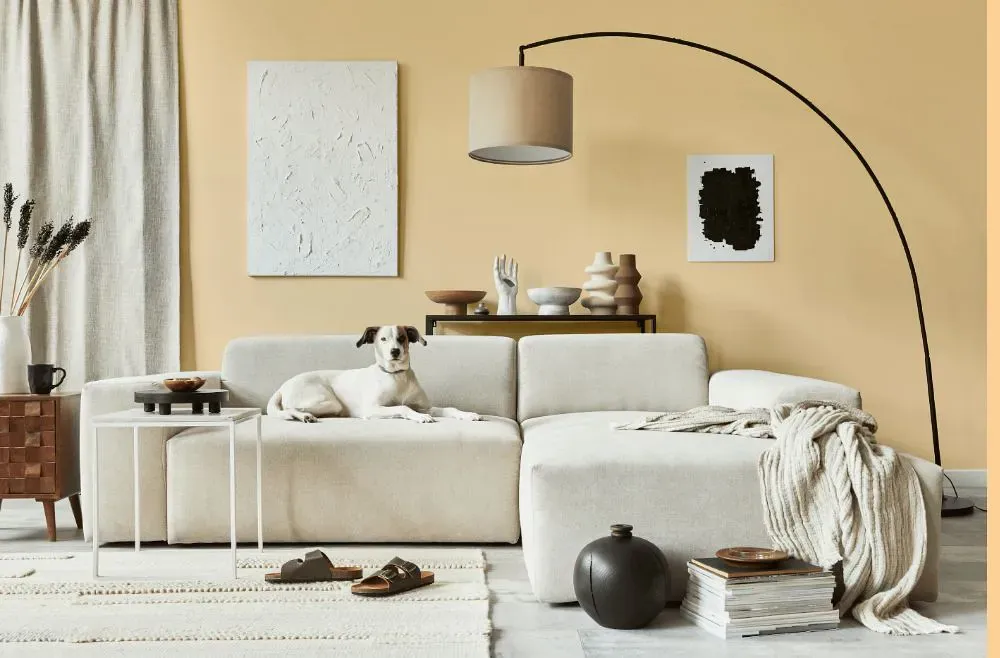
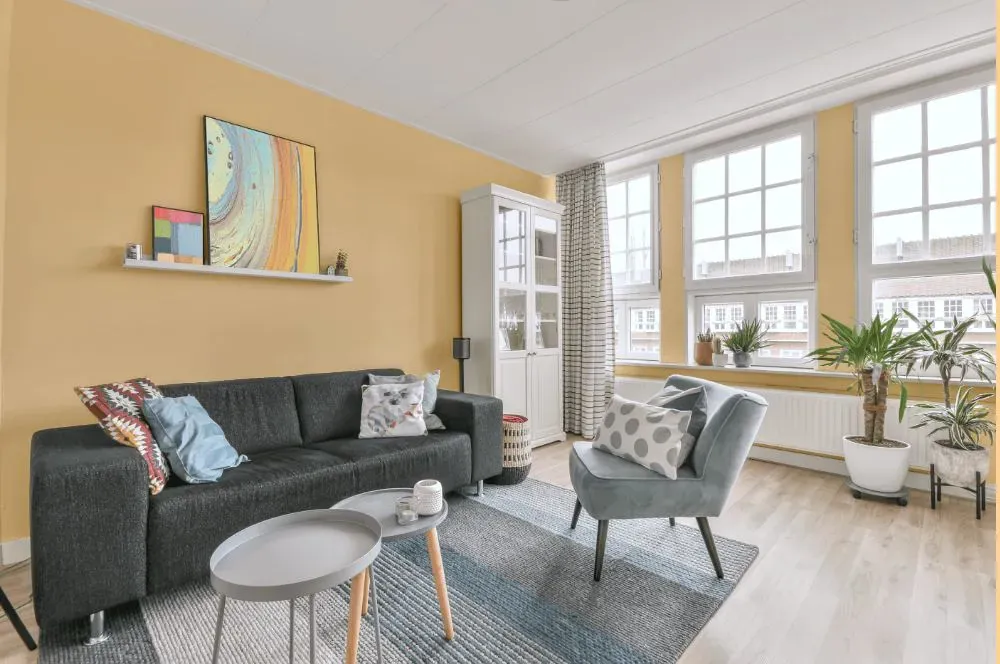

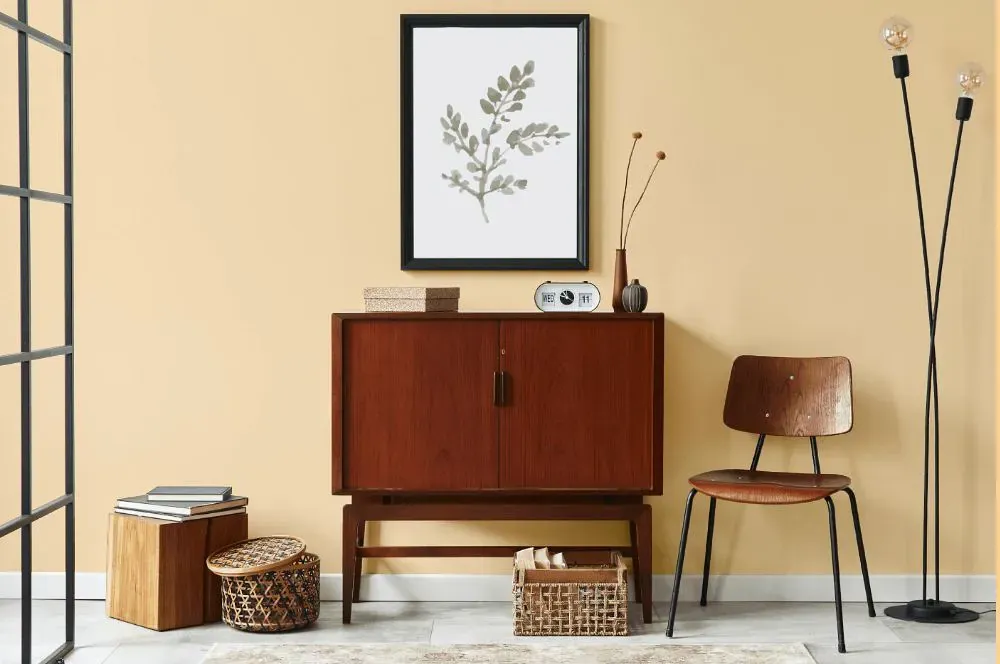
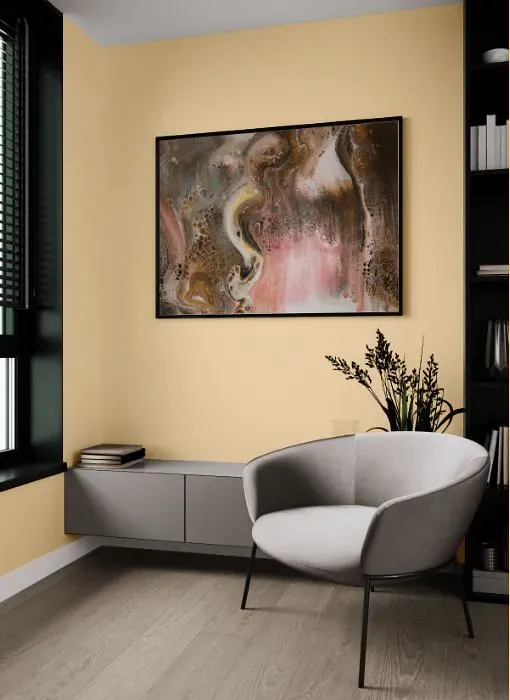
Benjamin Moore 156 for bathroom (2 photos)
Looking for inspiration for your dream bathroom renovation project? These beautiful handpicked photos will show you this delightfully warm Light yellow real bathrooms.
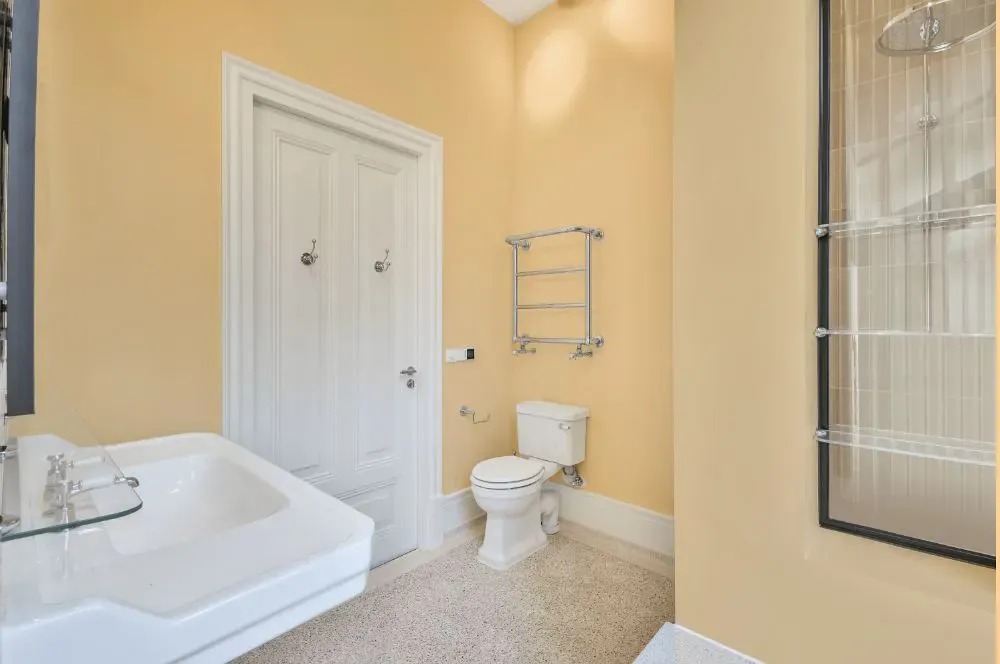
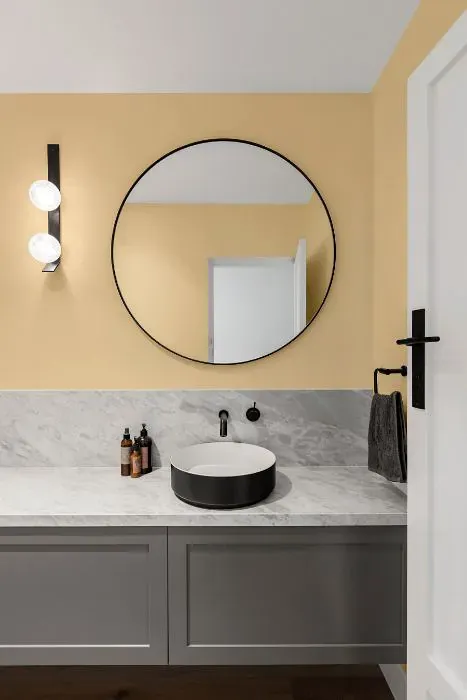
Benjamin Moore 156 on kitchen cabinets (4 photos)
Want a stylish kitchen? View real-life photo examples of this fascinating warm yellow hue is paired with backsplashes, countertops, and hardware.
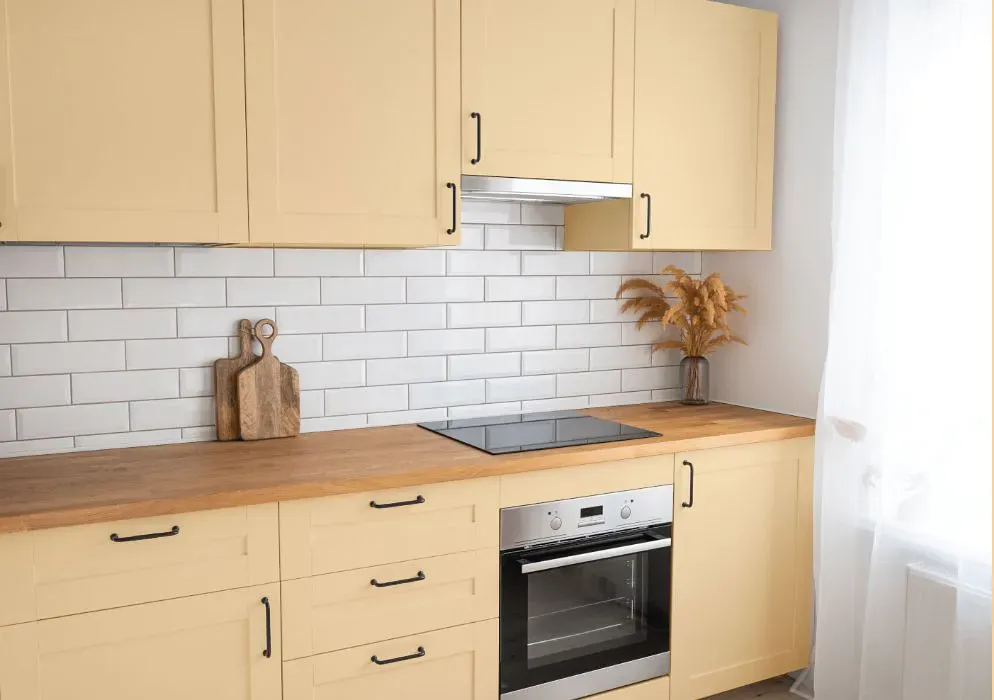
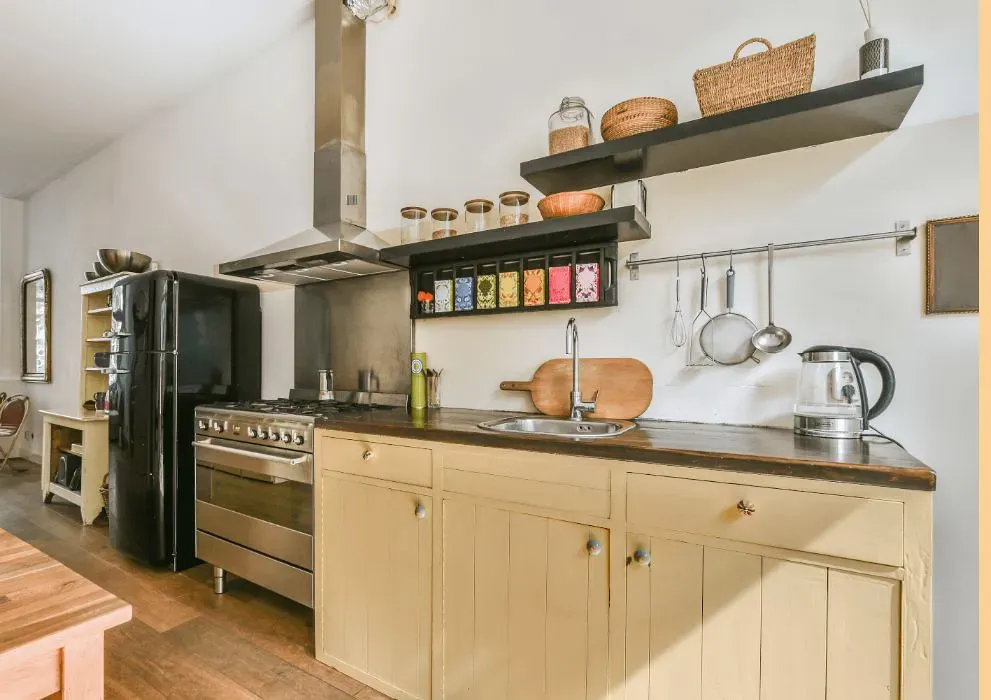
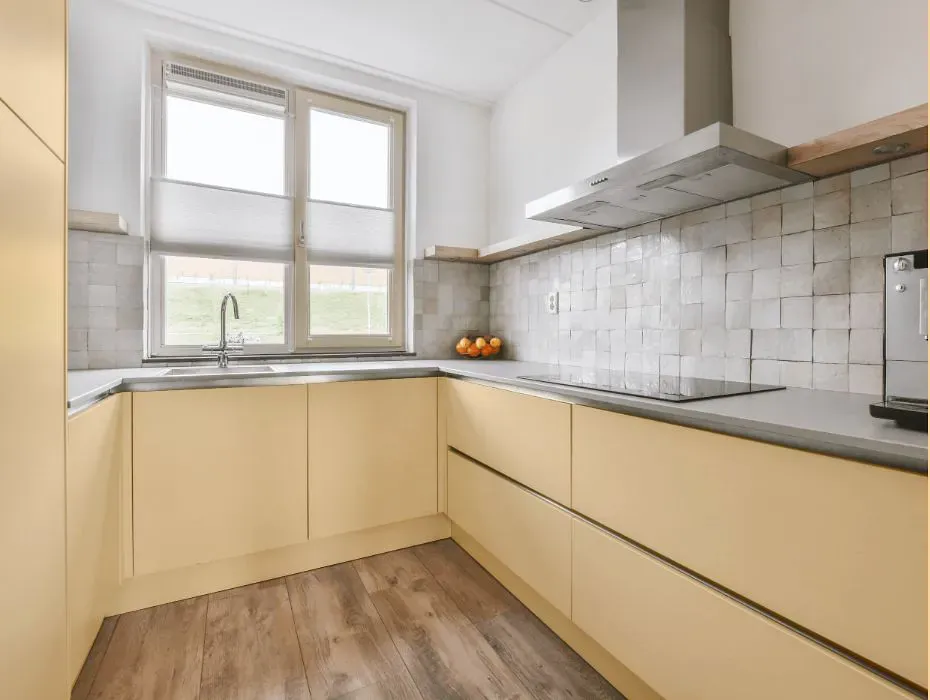
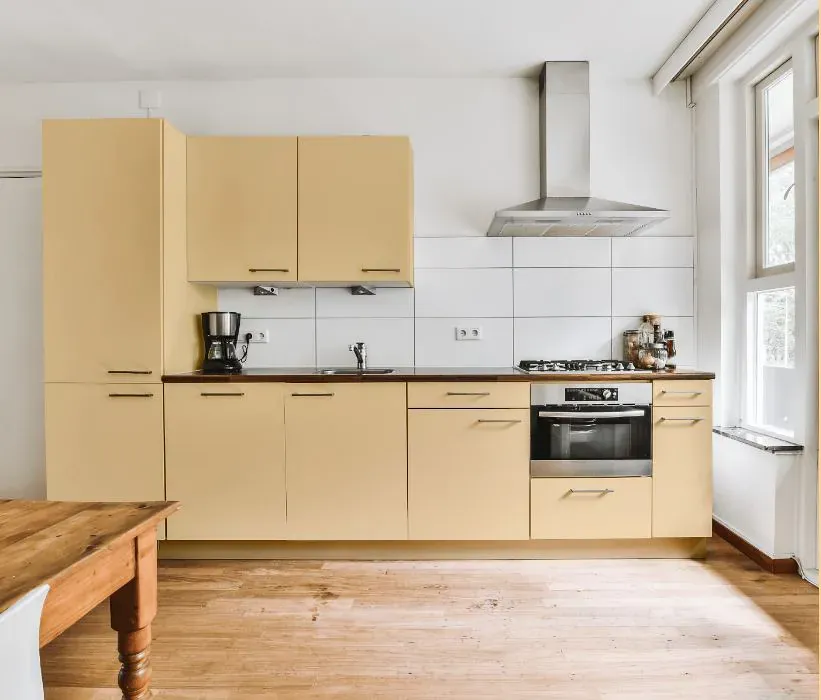
Benjamin Moore Sweet Nectar reviews (9 photos)
View the photos of real spaces painted with this yellow that were not included in specific categories.Close-ups, painted furniture, storages and dressers, hallways, stairs and ceilings.
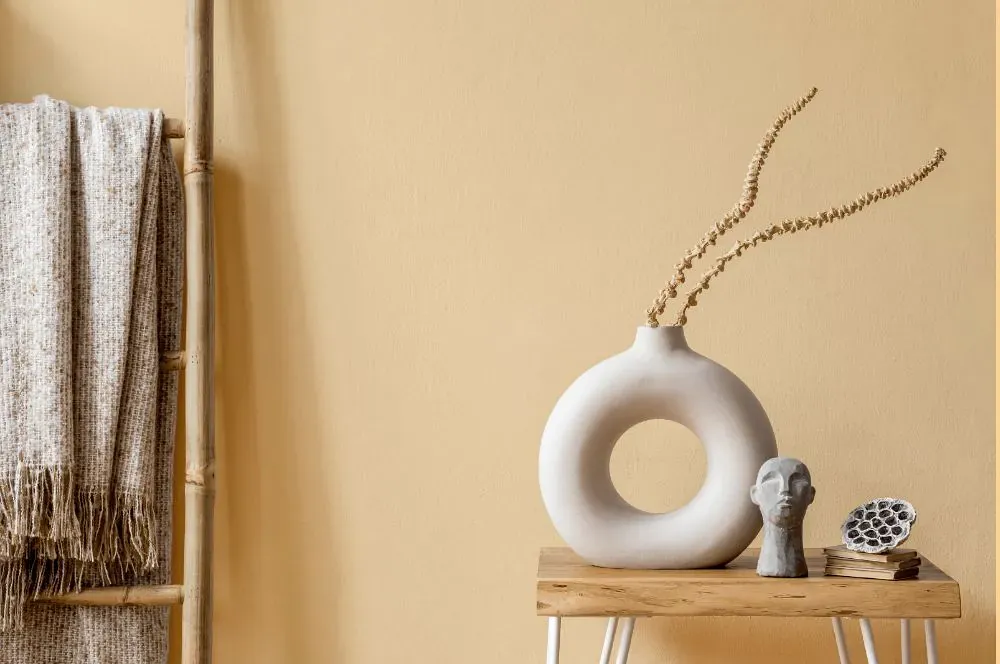
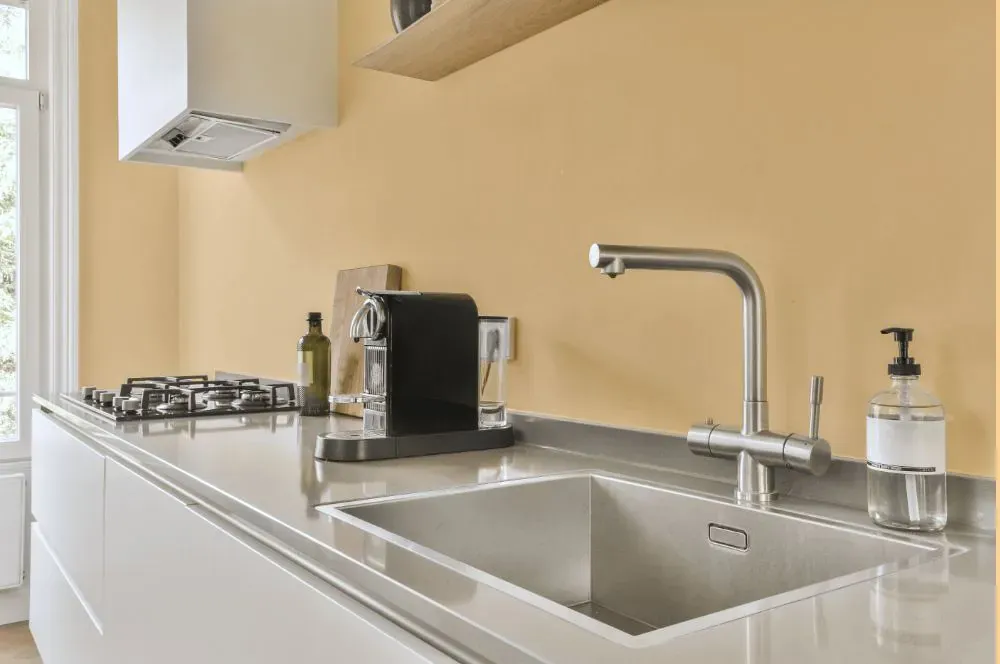
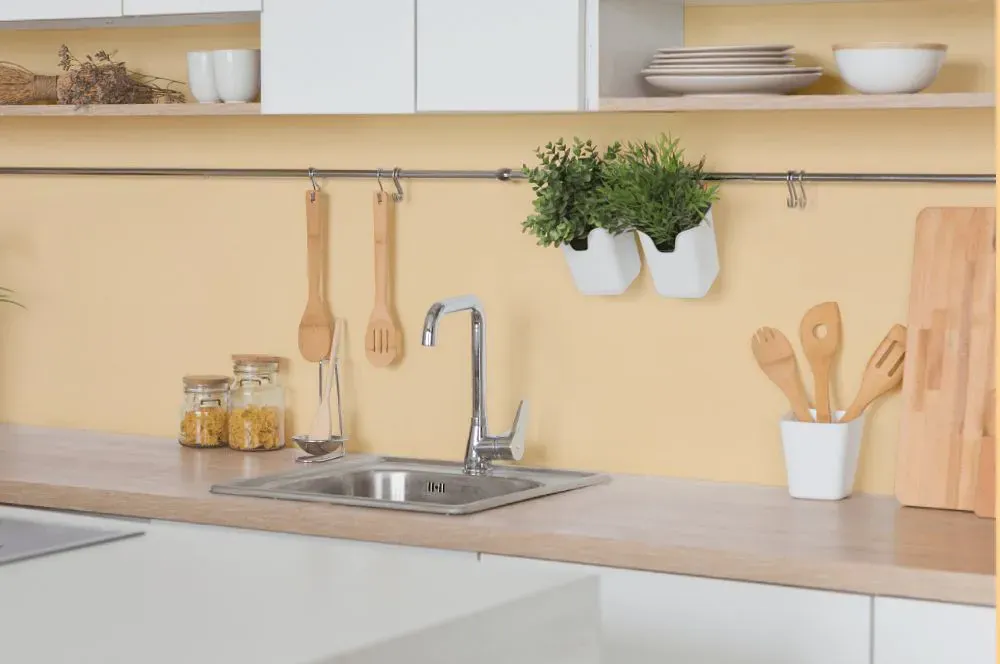
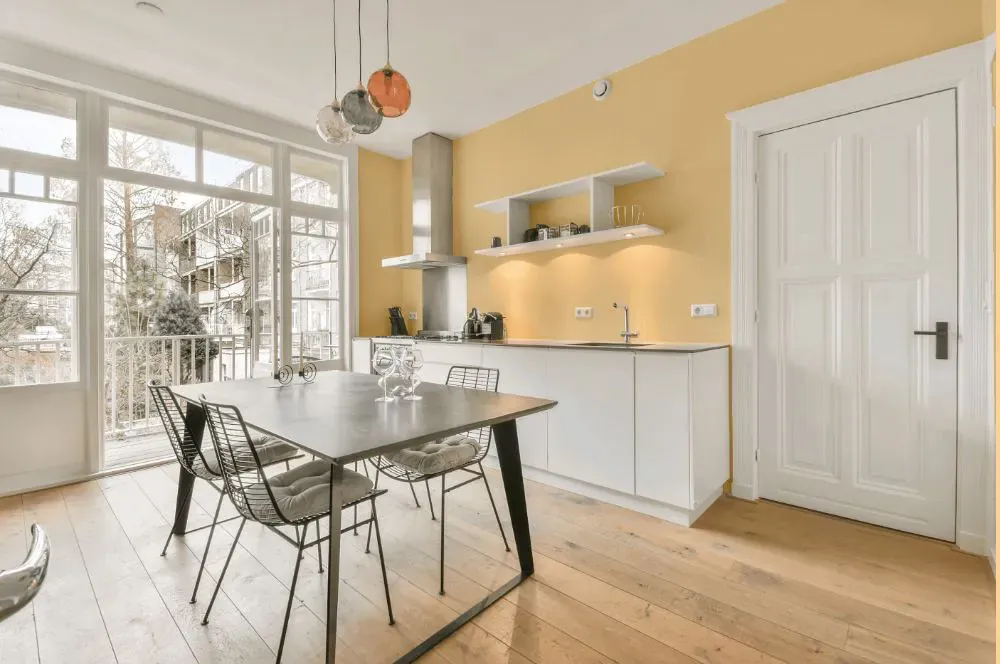
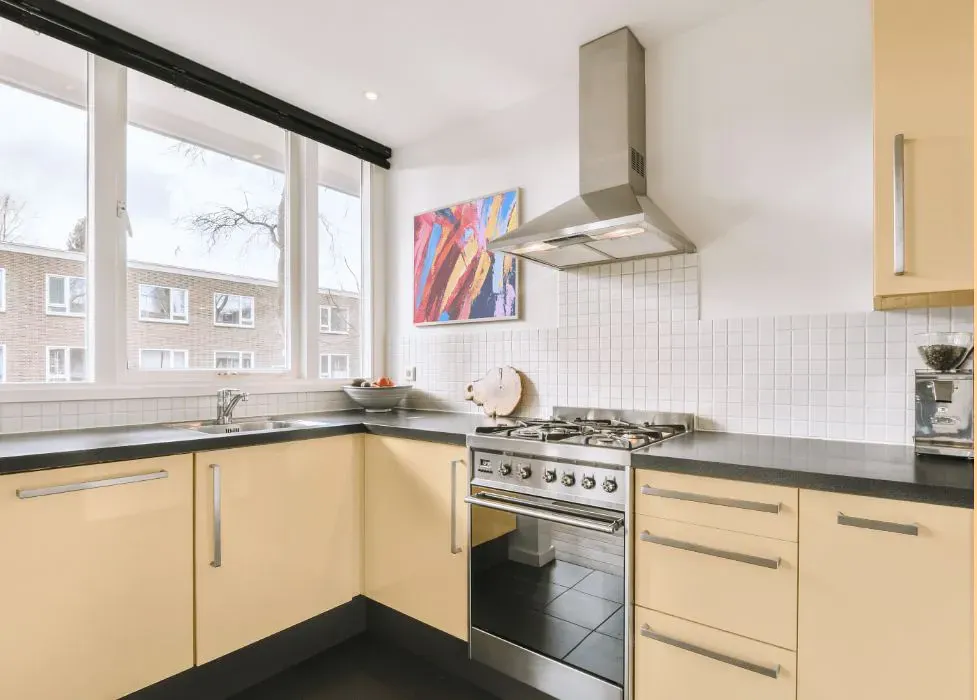
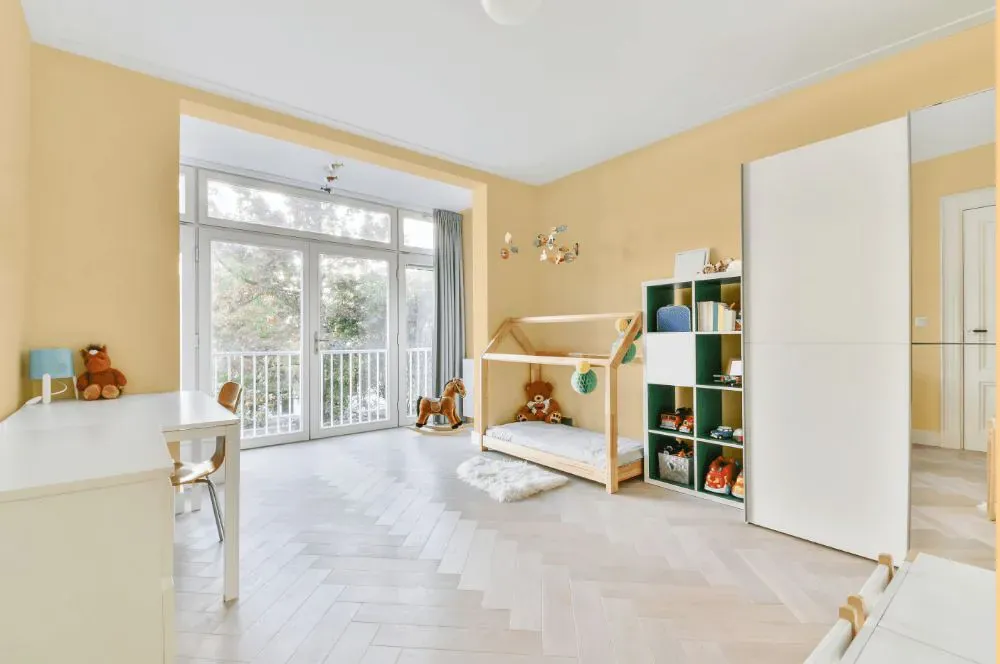
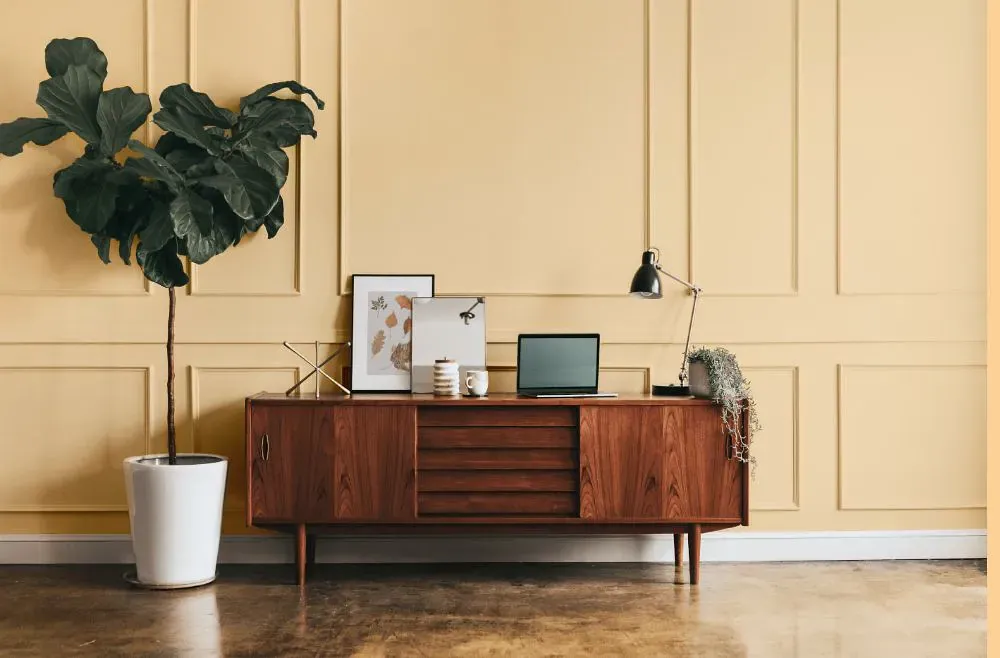
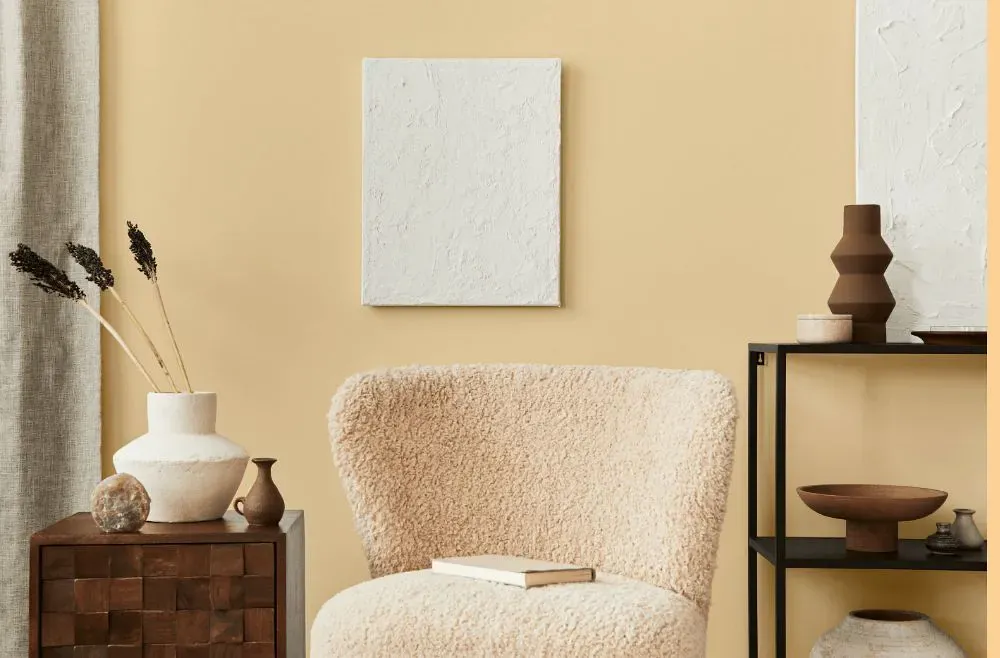
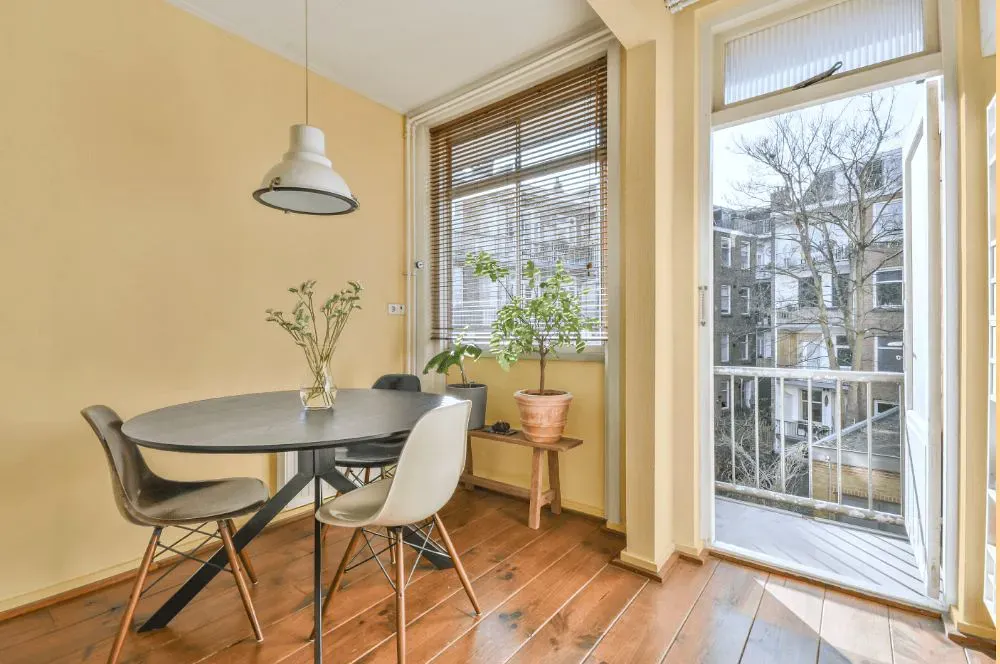
Try before you buy
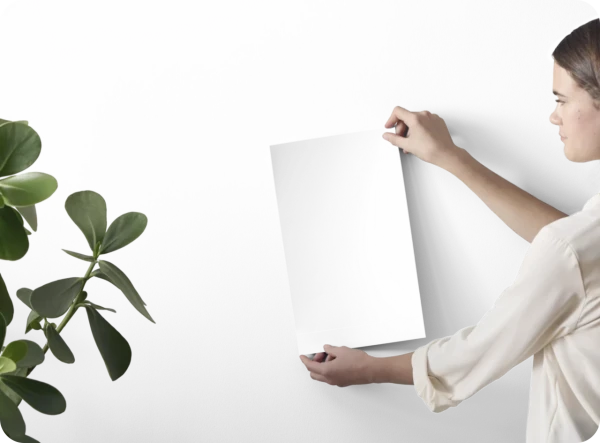

100% accurate
reusable paint samples

Peel, stick,
and repeat

Twice painted
with real paint

Next day
delivery
What are Benjamin Moore Sweet Nectar undertones?
Sweet Nectar has a clear red undertone based on its position in the color space. We identify undertones by isolating the pure hue (separating it from lightness and saturation), which avoids distortions caused by tints, tones, and shades.
This method is generally more reliable than judging undertones on a white background.
HEX value:
#FDE0B5
RGB code:
253, 224, 181
Is Benjamin Moore Sweet Nectar 156 cool or warm?

At 36° on the HSL hue wheel, this Yellow sits firmly on the warm side.
156 Sweet Nectar HSL code: 36, 95%, 85%
Hue - degree on a color wheel from 0 to 360. 0 is red, 120 is green, and 240 is blue.
Saturation is expressed as a percentage. At 0%, it appears as a shade of grey, and at 100%, it is in full color.
Lightness is also a percentage value. 0% is black, and 100% is white.
How light temperature affects Sweet Nectar
Natural Lighting. During the day, natural light shifts from about 2000 K at sunrise/sunset to 5500–6500 K at noon.
In addition, natural‑light temperature depends on its direction:
| Direction of sunlight | Visible temp. | Hue | Duration |
|---|---|---|---|
| North | Cool | Bluish | All day |
| East | Warm | Yellow | Before noon |
| West | Warm | Orange‑red | After noon |
| South | Warm | Orange‑yellow | All day |
Artificial Lighting. When choosing bulbs, pay attention to their color‑temperature (Kelvins).
Use the slider to see how this Yellow shade looks under different lighting:
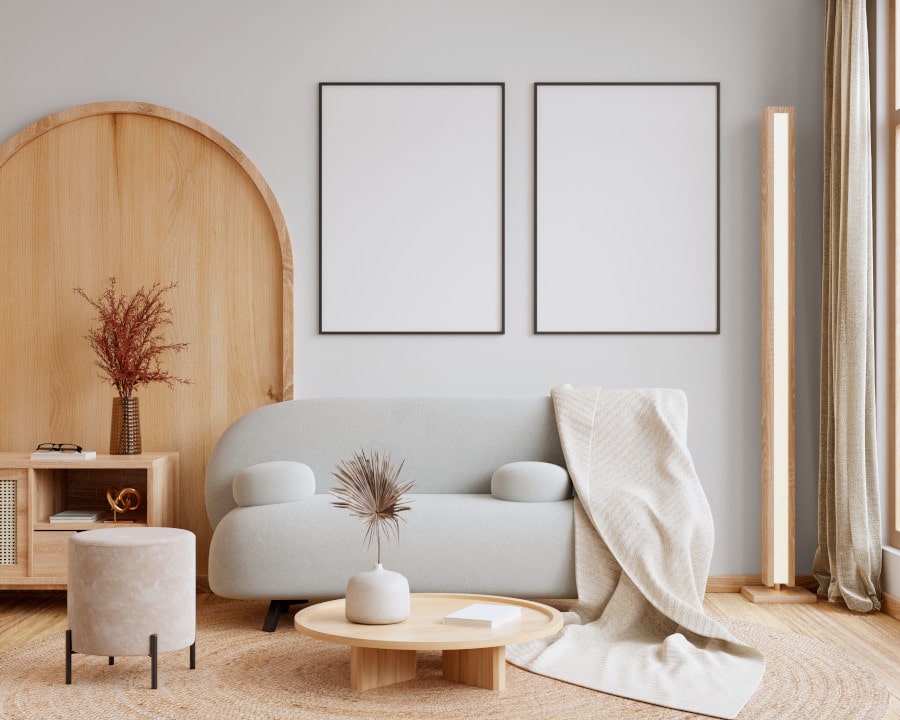
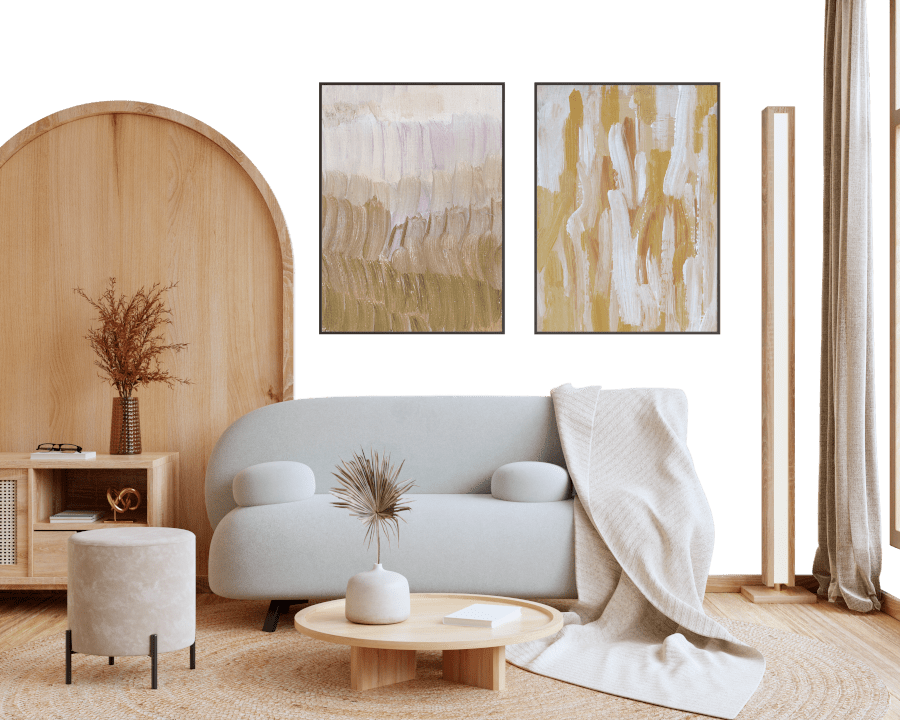
4000K
Coordinating colors.
Colors that go with Benjamin Moore Sweet Nectar:
Monochromatic color scheme

This scheme consists of various shades, tints, and tones of a single color. While it offers a perfect combination of hues, without accent décor it may become monotonous.
Lighter shades
156
Sweet Nectar
Darker shades
Complementary color scheme

This color scheme is a combination of two shades that are opposite each other on the color wheel. The high contrast between these colors creates a vibrant and dynamic visual effect. For the color Sweet Nectar with a orange hue, complementary colors are those with a blue hue close to 216, such as Benjamin Moore Fairview Blue and Blue Belle Island.
LRV of Sweet Nectar
Sweet Nectar has an LRV of 74.23% and refers to Off‑White colors that reflect a lot of light. Why LRV is important?

Light Reflectance Value measures the amount of visible and usable light that reflects from a painted surface.
Simply put, the higher the LRV of a paint color, the brighter the room you will get.
The scale goes from 0% (absolute black, absorbing all light) to 100% (pure white, reflecting all light).
Act like a pro: When choosing paint with an LRV of 74.23%, pay attention to your bulbs' brightness. Light brightness is measured in lumens. The lower the paint's LRV, the higher lumen level you need. Every square foot of room needs at least 40 lumens. That means for a 200 ft2 living room you’ll need about 8000 lumens of light – e.g., eight 1000 lm bulbs.
Color codes
We have collected almost every possible color code you could ever need. To copy the code, just click the icon to the right of it.
| Format | Code | |
|---|---|---|
| HEX | #FDE0B5 | |
| RGB Decimal | 253, 224, 181 | |
| RGB Percent | 99.22%, 87.84%, 70.98% | |
| HSV | Hue: 36° Saturation: 28.46% Value: 99.22% | |
| HSL | hsl(36, 95, 85) | |
| CMYK | Cyan: 0.0 Magenta: 11.46 Yellow: 28.46 Key: 0.78 | |
| YIQ | Y: 227.769 I: 31.099 Q: -7.247 | |
| XYZ | X: 75.504 Y: 77.533 Z: 54.692 | |
| CIE Lab | L:90.566 a:3.734 b:24.752 | |
| CIE Luv | L:90.566 u:20.594 v:34.35 | |
| Decimal | 16638133 | |
| Hunter Lab | 88.053, -1.03, 24.81 |
Color equivalents
M260-3
Time Out
Behr
2159-50
Wheatfield
Benjamin Moore
SW 7686
Hinoki
Sherwin Williams
142
Pineapple Smoothy
Benjamin Moore
P240-1
Cheese Powder
Behr
164
Birmingham Cream
Benjamin Moore
150
Peach Yogurt
Benjamin Moore
P250-2
Golden Nectar
Behr
SW 6659
Captivating Cream
Sherwin Williams

SW 9663
Honeypot
Sherwin Williams
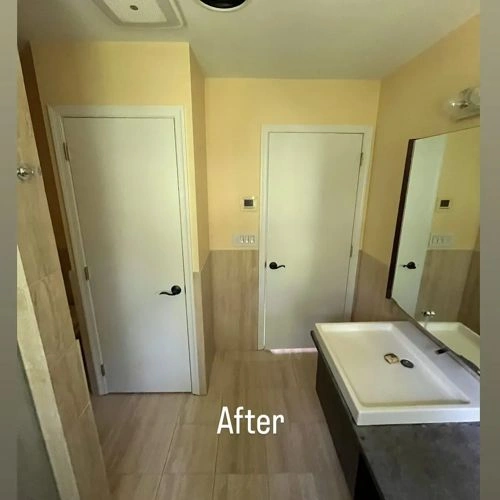
P240-2
Peach Glow
Behr
157
Cantaloupe
Benjamin Moore
PPU6-08
Pale Honey
Behr
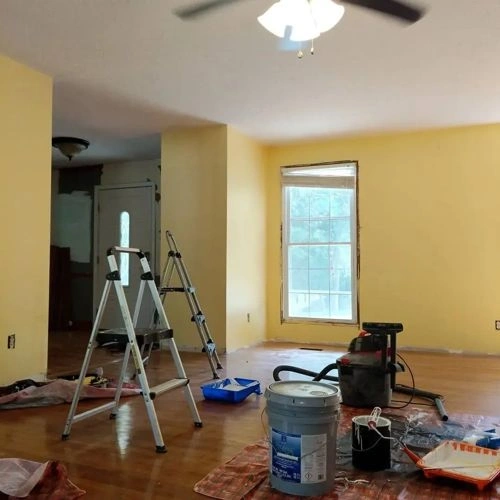
149
Sun Blossom
Benjamin Moore
SW 6666
Enjoyable Yellow
Sherwin Williams
M270-3
Cream Custard
Behr
143
Golden Light
Benjamin Moore
2158-50
Manila
Benjamin Moore
2154-50
Straw
Benjamin Moore
SW 6379
Jersey Cream
Sherwin Williams
